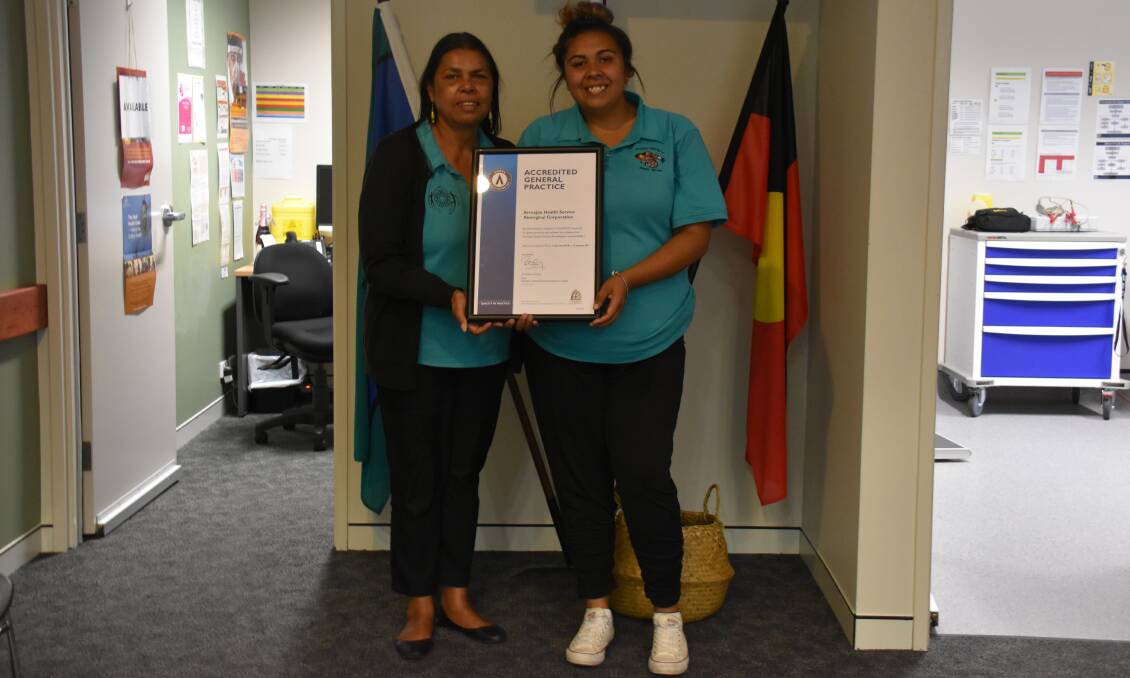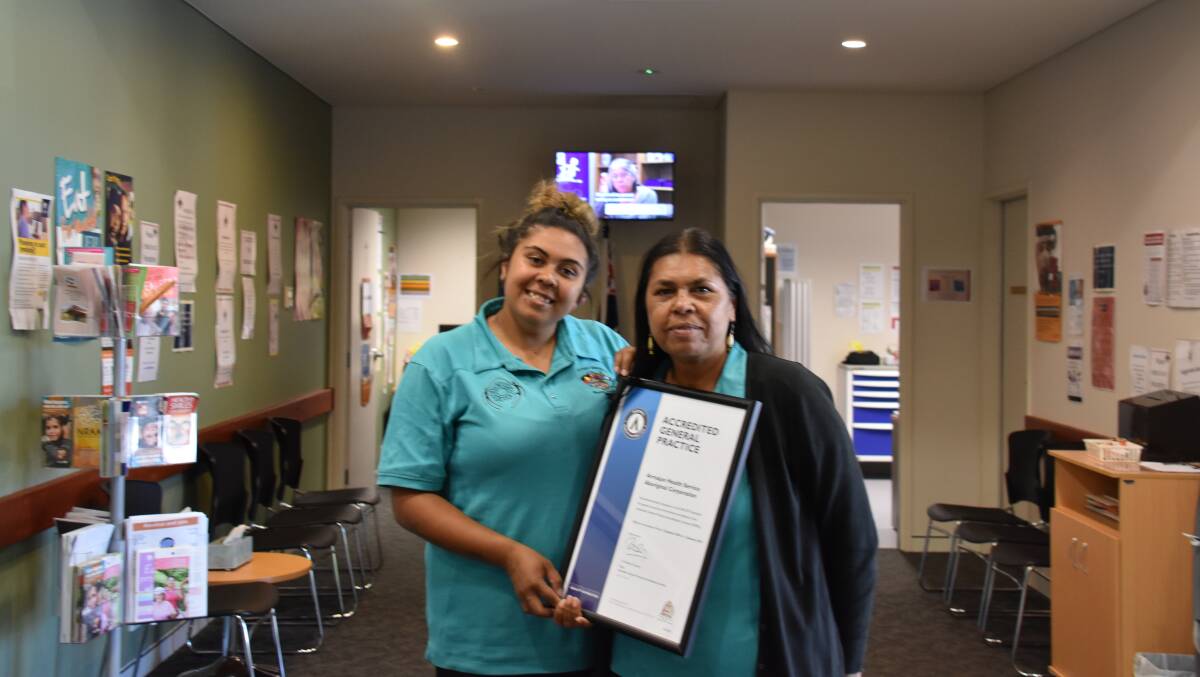
Armidale’s primary health care provider for Indigenous people, the Armajun Aboriginal Health Service, has received a national award of accreditation, demonstrating its commitment to quality and safety.
Subscribe now for unlimited access.
$0/
(min cost $0)
or signup to continue reading
Since opening in Armidale in 2016, the practice has worked hard to build up its clientele, attract doctors, and ensure that staff were fully qualified, and that standards, policies, and procedures were in place.
The Australian General Practice Accreditation Limited (AGPAL), the leading provider of GP accreditation services, recognized on January 16 that Armajun met the national standard, the Royal Australian College of General Practitioners (RACGP) Standards for General Practices.
Related stories:
- Armajun Health Service has provided care to the Aboriginal community in Armidale for one year
- Armajun to take over local Aboriginal health services
- Pat Dixon centre empty again as Armajun Health relocate to Rusden Street
- Armidale's primary Aboriginal health services may change under a new commonwealth government funding model
- Armidale's Aboriginal community support the Armajun Aboriginal Health Service to continue their services in town after receiving almost $2.6 million in funding
“We’re just extremely happy,” said manager Deb Green. “We were all excited to achieve our accreditation. Abby Croft was the practice manager at that time, so she’s put a lot of time and effort into ensuring we achieved all of these milestones to get there, but it was a real whole team effort to get that.”
Armidale Armajun is an outreach service attached to the original Armajun organization, founded in Inverell in 2006. The Armidale practice caters to 1,000 clients, also covering Guyra, Uralla, and Walcha, as well as transients passing through town.
It is a one-stop shop that provides a GP clinic, as well as specialist services, including podiatry, counselling, psychology, drug and alcohol rehabilitation, an eye clinic, and a dental service.
“It's been a big milestone for Armidale, to get the local Aboriginal medical service up and running for a much needed service,” Ms Green said.
“For so long there was no access to immediate health services, including our specialist services, so a lot of our clients had to travel away when normally they couldn't afford it, and they'd miss their very, very important appointments.”
The practice formerly operated out of the Pat Dixon Medical Centre, with only three staff. Since moving to 213 Rusden Street in December 2016, it has grown to a staff of 21 or 22, including two full-time and two part-time doctors, five nurses, two Aboriginal health workers, a drug and alcohol team, a case worker, a female mental health worker, and three receptionists.
"We've got Aboriginal and non-Aboriginal staff,” Ms Green said, “and it's just like the extended family, and the relationship, the rapport with community there is amazing."
The practice provides an invaluable service to the Aboriginal community, whose average life expectancy is 16 years less than the rest of the population’s, and who are more prone to getting health issues early in life.
“For too long,” Ms Green said, “we're just attending funeral after funeral after funeral, within our communities. A lot of it extends from poor health, and unhealthy lifestyles, so we're also about educating our community, early intervention and prevention.

“What we're aiming at is to decrease that mortality rate.”
Ms Green encouraged people to have annual health check-ups – and urged them not to ignore symptoms, but to see a doctor.
“The biggest message out there is: If they suspect for a minute, or if they're not feeling well, don't scoff it off, or ignore it, and don't leave until things get extreme or escalate. We're saying: Act on it! If your body's telling you something, please listen to your inner self, and get it seen to, because early detection and early diagnosis prevents all of these other things later on down the track, and will certainly ensure that our people a lot, lot longer.”
Armajun also adopts a holistic approach, addressing its clients’ emotional and mental needs, as well as their physical health.
“It's not only on the inside; it's on the outside as well, from the top down,” Ms Green said. “We can fix a lot of things, but if there is something broken down inside of us, one part, we don't put it all together, and make sure that the top part to the bottom part is all intact, we're missing something, so we've got to make sure people are healthy in spirit and mind, as well.”
To this end, the practice runs groups associated with every aspect of health, including separate groups for elders, men, women, and “mums and bubs”.
"We've got so many that are in isolation,” Ms Green said; “they live alone, particularly some of our elderly people, so that social aspect is another part of it, where we bring them together. We give them a space, an environment, where they can just sit down, and do group things, and share each other's company."
The elders’ group, for instance, learn how to use computers for half a day each week.
"One of the elders said, 'When you go to places like Centrelink, and I'm an elderly woman, you don't deal with real people anymore. I don't know nothing about computers, and they give me all this information, tell me to go and log on; I have no idea!' So I said: 'Darling, that was a need! You have identified a need for your group, which is something you've struggled with, so there is a gap there. Let's put that to work, and see if we can get something happening there! What about basic computing skills?'"
Ms Green is proud of what Armajun has achieved over its short time, and is hopeful about the future.
“We're going into our second birthday this year, so Armidale Armajun have accomplished so much, and we've got a long way to go, but it is going on that journey and making sure we make a difference in people's lives, and certainly overcoming and trying to close that gap in ensuring that our people are not going to be 16 years earlier. We hope to get to the other side of it, and ensure that they live a long, healthy life. We want our mob around for a long, long time.”

